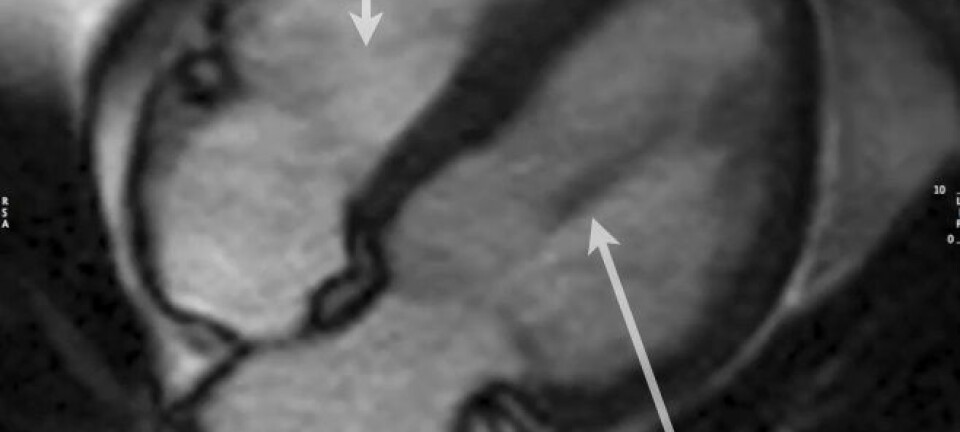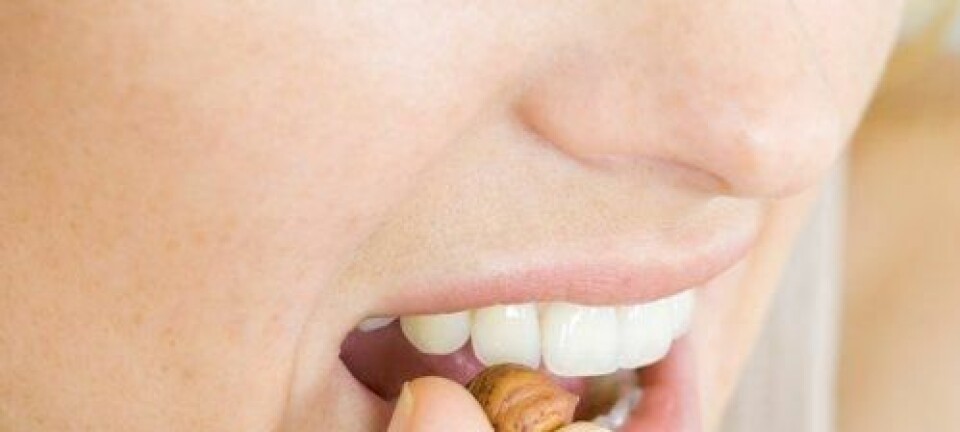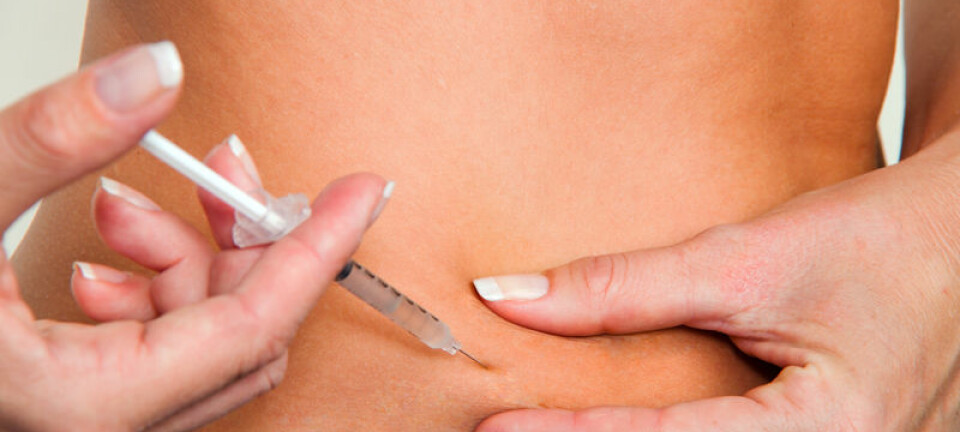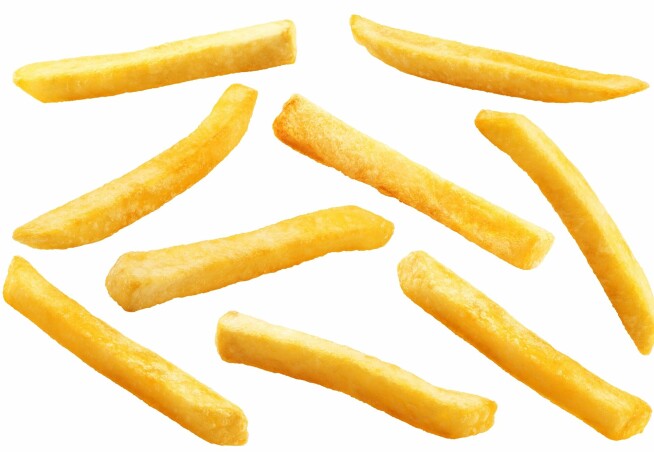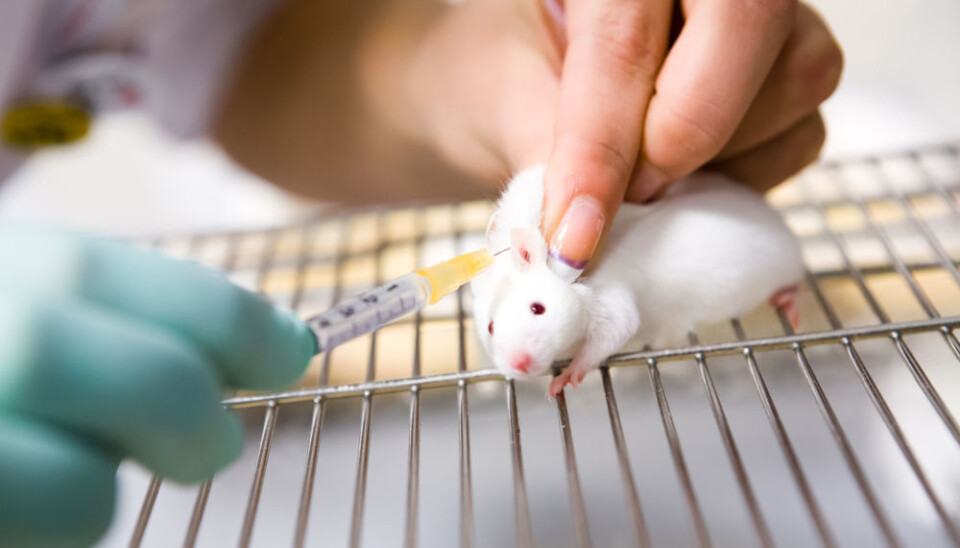
A shot of gluten reduces risk of diabetes in mice
Mice treated with gluten have lower risk of developing type 1 diabetes. Could lead to vaccine against the widespread disease.
A vaccine against diabetes could be on the way, says Danish researchers behind a new study, in which they demonstrate how mice treated with gliadin protein, a component of gluten, have lowered risk of developing type 1 diabetes.
Gliadin is an alcohol soluble component of gluten, a composite protein found in wheat and most grain-based foods.
"We’ve previously shown that development of type 1 diabetes in mice can be slowed by feeding the mice a gluten-free diet, and one promising human case has also been published," says Karsten Buschard, a professor at the Bartholin Institute at the Copenhagen University Hospital. "But it’s difficult to eat completely gluten-free food so we’re trying to find other methods to curb the disease."
Buschard adds, "In our latest test, we’ve shown that when we spray gliadin into the snouts of the mice, their risk of developing diabetes is much lower than otherwise -- even if they continue to eat gluten.”
Snout shots help diabetic mice
Buschard is one of the researchers behind the new results, recently published in PLOS One.
Buschard and colleagues gave the mice, which were specially bred to develop type 1 diabetes (NOD mice), a shot of gliadin through their snouts, delivered painlessly by an ordinary nosespray. By doing so just five times, the mice were 44 per cent less likely to develop diabetes compared to mice that didn’t receive the snout-delivered gluten shot.
Gliadin is also effective against gluten allergy
The researchers think the gliadin shot halts the development of diabetes because it somehow makes their digestive tract able to tolerate gluten.
Gluten has previously been shown to worsen the symptoms of type 1 diabetes, says another researcher behind the new study, Professor Axel Kornerup Hansen of the Department of Veterinary Disease Biology at the University of Copenhagen.
"Learning to live with the things that you find difficult to tolerate as early as possible is a vital part of life," says Hansen. "If the immune system hasn’t learned to tolerate gluten, you develop intolerance but by giving gliadin to mice that are 4-13 weeks old, before their immune system is fully developed, it increases their tolerance."
The gliadin snout drops can also prove to be an effective treatment against gluten intolerance.
"In general, gluten is a substance that is quite difficult to digest," says Hansen. "More and more Danes develop gluten intolerance and research has shown that there’s a link to type 1 diabetes.”
10 per cent of all type 1 diabetics are also gluten intolerant, he says.
Gluten-free diet stops type 1 diabetes
In 1999 Buschard and colleagues published a study that has since attracted attention from all over the world.
The Danish researchers conducted trials that demonstrated how NOD mice had up to 94 per cent lower risk of developing diabetes if they were fed a completely gluten-free diet right from the beginning of their lives.
When the mice did were completely gluten-free, they had far fewer of the symptoms that are known risk factors for type 1 diabetes. The mice on the gluten-free diet had:
-
Better bacterial flora in their intestines.
-
Less inflammation in their intestines.
- Less permeable ('leaky') intestines.
More and more people get type 1 diabetes
Over recent decades, the amount of people with type 1 diabetes has increased. The metabolic disease makes the body attacks its own insulin-producing cells, effectively rendering our organism unable to store sugar and carbohydrates.
Around 112,000 people in Europe suffer from type 1 diabetes. All of them have to inject themselves with insulin several times a day throughout their lives.
Buschard hopes that he or others will have the opportunity to conduct the clinical trials necessary to discover whether gliadin nose drops can have the same effect on humans as it had on mice.
"The gluten-free diet is a miraculous treatment for type 1 diabetes in mice -- but eating food that is wholly without gluten is difficult," he says. "Being able to develop a form of vaccine that can prevent the development of type 1 diabetes and gluten allergy would make life easier for a lot of people."
--------------------------
Read the full story in Danish on Videnskab.dk
Translated by: Michael de Laine
Scientific links
- "Prevention or Early Cure of Type 1 Diabetes by Intranasal Administration of Gliadin in NOD Mice", PLOS One 2014, doi:10.1371/journal.pone.0094530
- "Diabetes 2014: A maternal gluten-free diet reduces inflammation and diabetes incidence in the offspring of NOD mice", PLOS One 2014, doi:10.2337/db13-1612
External links
- Karsten Buschard's profile (University of Copenhagen)
- Axel Kornerup Hansen's profile (University of Copenhagen)


